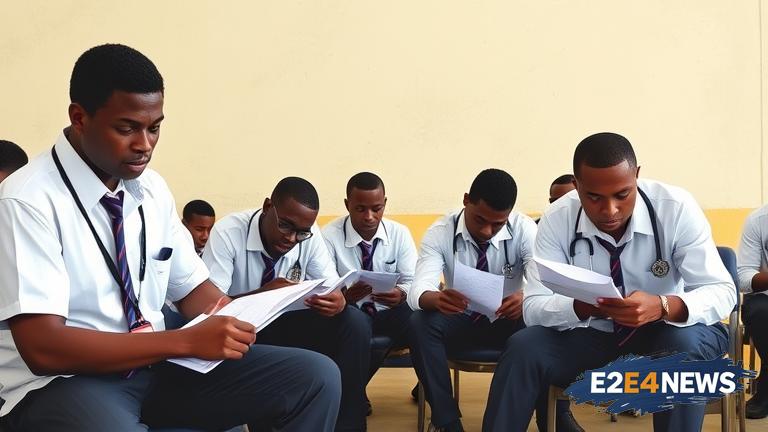The Ghana Education Service (GES) has released a report citing over 70 senior high schools in the Ashanti Region for examination malpractice. This shocking revelation has sent shockwaves throughout the country, with many calling for urgent action to be taken to address the issue. The report, which was compiled after a thorough investigation, found that many schools in the region had engaged in various forms of malpractice, including cheating, impersonation, and leakage of examination questions. The GES has vowed to take stern action against the schools and individuals found guilty of the malpractice, including revoking the licenses of schools and banning students from taking exams. The Ashanti Region is one of the most populous regions in Ghana, with a high concentration of senior high schools. The region has a reputation for producing some of the best students in the country, but this latest scandal has tarnished its image. The GES has assured the public that it is committed to maintaining the integrity of the education system and will do everything in its power to prevent such incidents from happening in the future. The report has sparked a heated debate about the state of education in Ghana, with many calling for a complete overhaul of the system. Some have blamed the malpractice on the lack of resources and poor infrastructure in many schools, while others have attributed it to the pressure on students to perform well in exams. The GES has promised to work with stakeholders to address the root causes of the problem and prevent it from happening again. In the meantime, the affected schools have been given a chance to respond to the allegations and clear their names. The GES has also warned that any school found guilty of malpractice will face severe penalties, including the loss of accreditation. The incident has also raised concerns about the impact of examination malpractice on the quality of education in Ghana. Many have expressed worry that the scandal could undermine the credibility of Ghanaian certificates and diplomas, making it difficult for graduates to compete in the global job market. The GES has assured the public that it is taking the matter seriously and will do everything in its power to restore the integrity of the education system. The Ashanti Region has been at the center of several education-related scandals in recent years, including the sale of fake certificates and diplomas. The region has a large number of private schools, many of which have been accused of prioritizing profits over quality education. The GES has vowed to crack down on such schools and ensure that they meet the required standards. The examination malpractice scandal has also sparked a debate about the role of technology in education. Some have suggested that the use of technology, such as mobile phones and computers, has made it easier for students to cheat and engage in malpractice. Others have argued that technology can be used to prevent malpractice, such as through the use of online proctoring and biometric verification. The GES has promised to explore the use of technology to prevent examination malpractice and ensure the integrity of the education system. In conclusion, the examination malpractice scandal in the Ashanti Region is a wake-up call for the Ghanaian education system. It highlights the need for urgent action to be taken to address the root causes of the problem and prevent it from happening again. The GES has vowed to take stern action against the schools and individuals found guilty of malpractice, and to work with stakeholders to restore the integrity of the education system.
